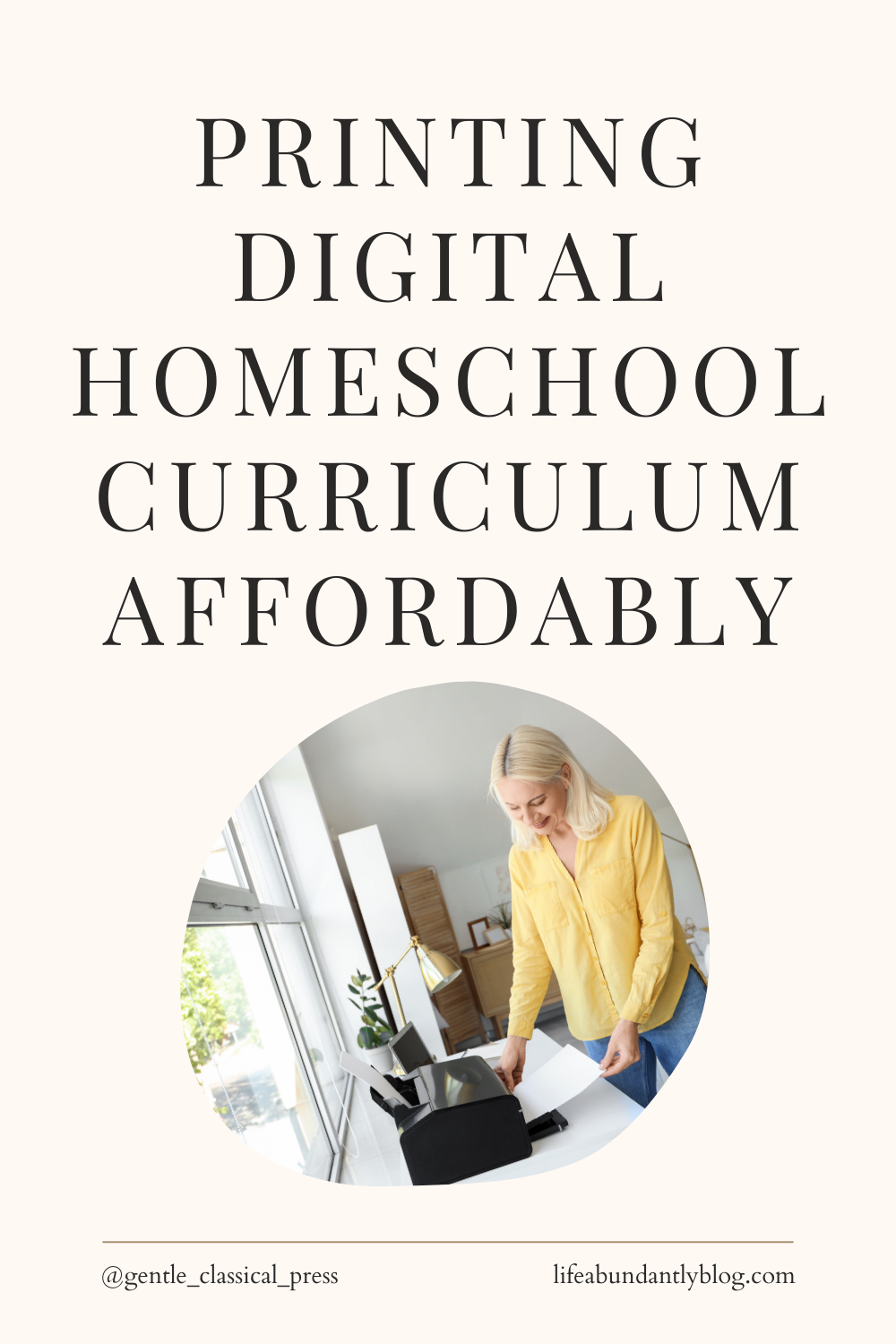Your Curriculum Isn't the Holy Spirit
/At some point in nearly every Gentle + Classical Teacher’s Guide, I include a small but important reminder:
This curriculum is written from my worldview, for my family, based on my current convictions, beliefs, knowledge, and abilities. But it will not be without fault—nor will it always perfectly reflect your convictions, beliefs, knowledge, or abilities.
I include that reminder not as a disclaimer but as a loving acknowledgment of what curriculum is—and what it isn’t. As homeschool parents, we all long for resources that affirm our values, align with our convictions, and point our children toward what is good, true, and beautiful. We want books that don't require a theological tightrope walk or constant pre-screening. That desire is valid. It’s not just reasonable—it’s deeply responsible.
But in the pursuit of that “perfect fit,” it’s easy to forget what the curriculum was designed to do. When we’re not careful, we can begin asking a curriculum to do more than it was ever meant to.
The Curriculum Is the Map—Not the Driver
The word “curriculum” comes from the Latin currere, which means “to run” or “to run a course.” A curriculum outlines a course of study. It’s the map. In some ways, it’s the vehicle itself—a car, a GPS, a suggested route. But it is not the driver. You are.
When we mistake the curriculum for the driver, we start expecting it to anticipate and account for every doctrinal nuance, every social issue, and every parenting style. We want it to challenge nothing, offend nothing, and align perfectly with everything we hold dear. And if it doesn’t? We feel let down—or worse, we feel like we’ve made a poor choice.
But even the most Christ-centered curriculum cannot carry the weight of being all things to all families. It was never designed to. Curriculum is a tool, not a theological identity. It is meant to support you, not replace you.
We Don’t All Drive the Same Way
Imagine homeschooling as a journey. Your curriculum is part of the vehicle you’re using to travel that road. Now think about how differently people drive.
Some parents stick to the interstate—organized, streamlined, and efficient. Others prefer back roads, stopping for roadside fruit stands and scenic detours. One parent might plan bathroom breaks down to the mile marker. Another pulls over when someone’s hungry or tired.
Even preferences like speed come into play. You may never drive over the speed limit, while I might be fine pushing it a little. We’re all navigating with different risk tolerances, priorities, and rhythms—and for the most part, that’s okay. The paths are different, but the destination is the same.
This applies to homeschooling, too. Some families move quickly through content; others pause and linger. You might skip a book or add a resource based on your child’s needs or your spiritual convictions. These are not failures. These are faithful choices made by a present, Spirit-led parent.
Curriculum Isn’t a Doctrinal Statement
Within the Gentle + Classical community, families represent a wide range of Christian traditions. Some are Reformed. Some are Charismatic. Some attend Baptist or Anglican churches. Others are Catholic, non-denominational, or a blend of influences. And yes, that means we won’t always land in the exact same place on every second-tier doctrine or cultural conversation. (You can read our statement of faith here.)
But that doesn’t mean one group is more faithful than another. We all love Jesus. We all want to raise children who know and follow Him. And we all believe He equips us, as parents, to make wise and discerning choices for our families.
Paul addresses this idea beautifully in Romans 14:
“One person’s faith allows them to eat anything, but another, whose faith is weak, eats only vegetables. The one who eats everything must not treat with contempt the one who does not… for God has accepted them.”
Scripture gives us room for prudence and Spirit-led discernment in the gray areas. That’s true for food, and it’s true for books and curriculum. Sometimes, you’ll need to “spit out the bones,” keeping what serves your family and setting aside what doesn’t. And if there are too many bones, it may simply mean that resource isn’t the right fit for this season—and that’s okay.
You Are the Disciple-Maker
In our convenience-driven culture, it’s tempting to think that everything we purchase should arrive exactly as we want it—customized, curated, and ready to go. But homeschooling—especially Christian homeschooling—was never meant to function that way.
You cannot outsource discernment. You cannot subcontract your role as the wise guide and protector of your child’s heart.
That means pre-reading the books, praying over the lessons, previewing the videos, researching the references, and asking the Holy Spirit to shape you as you lead. The best curriculum will come alongside you, encourage you, and equip you—but it will never replace your calling as the one God chose to steward your child’s education.
When You Find Something Off
Yes, there are moments when something slips through the cracks. Maybe it’s a historical reference, a picture, or a source that doesn’t align with your worldview. When that happens, we genuinely want to hear from you—especially when it’s brought with grace and kindness. We aim to assume the best in others, and we’re grateful when you do the same for us.
But ultimately, curriculum is a tool. It is not the Holy Spirit. It is not infallible. And it was never intended to be your family’s source of truth.
You Don’t Need a Perfect Curriculum—You Need a Present Savior
You don’t need a program that gets everything “just right.” You don’t need every lesson, book, or reference to reflect your views perfectly. You need Jesus. And you already have Him.
He hasn’t called you to home educate and then left you to figure it out on your own. He’s with you in the small decisions, the long days, and even in the uncertainty. He equips those He calls, and He walks beside you every step of the way.
So take a breath. Trust His leading. And drive forward with confidence.
You’ve got this—because He’s got you.

















